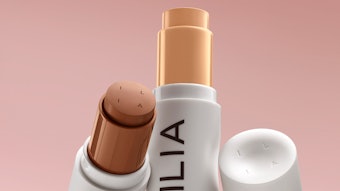The Brazilian beauty market is growing rapidly despite Brazil’s receding economy. The new "Consumer Trends Analysis: Understanding Consumer Trends and Drivers of Behavior in the Brazilian Make-up Market" report by Canadean finds that the desire to look beautiful among young Brazilian women is stronger than the recession.
According to the report, the value of the makeup market in Brazil will increase from R$7.1 billion in 2013 to R$13.4 billion by the end of 2018, despite the downward spiral of the rest of the Brazilian economy, which has been registering negative economic growth in three of the last four quarters. This shows that the Brazilian makeup market is booming, even in times of low consumer confidence and in poorer areas of the country.
The Desire to be Beautiful
According to Canadean data, the desire to look beautiful is a strong driver behind the growth in the Brazilian makeup market, motivating 21.4% of makeup consumption. Canadean also finds that the average consumer of beauty products in Brazil is young and female; Brazilian women applied a makeup product 24 billion times in 2013, accounting for 85% of all makeup applications. Moreover, women aged between 16 and 34 carry out 40% of makeup applications.
“Young women seek a professional image in the workplace, and are more willing to experiment for special occasions," says Kirsty Nolan, analyst at Canadean. "They are also more likely to follow the fashion, regularly changing their makeup look to keep up with the latest trends.”
Key for Success: Direct Sales and Private Label
Selling products directly to consumers away from a fixed retail location is very popular in the Brazilian makeup market. Direct sales provide an enjoyable experience for consumers, as they can take a little time out to browse the catalog and build a good relationship with their local sales representative.
Direct sellers such as Avon and Natura are leading, and Sephora has successfully established its own private label brands available through its catalog. Those companies can not only offer consumers a good range of products straight to their door at affordable prices, but they also have more control over profit margins.
“International makeup brands need to adopt some of these principles in order to succeed in the Brazilian makeup market," says Nolan. "Products need to be affordable and attainable for young women. Effective channels of distribution, such as agreements with established direct sellers or relationships with local shops and salons, are the key to success."

![Curious about the latest trends in Beauty and Personal Care innovation? [download free report]](https://native-x.imgix.net/allured/65fde687b40d3e0001e2ce0d/_Thumbnail%20Image%201-19-24.jpg?crop=focalpoint&fit=crop&fp-x=0.5&fp-y=0.5&h=191&w=340&auto=format%2Ccompress&q=70)








